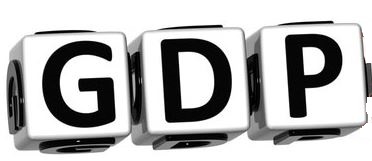GDP:Â The market value of all final goods and services produced in a nation in a given year.
This definition of GDP is one that is seen and memorized by every student who takes an economics course. It’s a metric that is held above all others in economics. Economists, investors, politicians – all look at our GDP to look at the state of our economy. Simply put, it tells us how well our economy is doing. Or does it?

Bobby Kennedy did a great job summarizing the downfalls of GDP:
“It measures neither our wit nor our courage, neither our wisdom nor our learning, neither our compassion nor our devotion to our country. It measures everything in short, except that which makes life worthwhile.”
About GDP
Invented after the Great Depression by Simon Kuznets in 1934, GDP helped tell us how much stuff (like bombs, tanks, etc.) we were making. But, even he warned about itÂ
“the welfare of a nation can scarcely be inferred from a measurement of national income.”
What is GDP Lacking?
- The free time that is pivotal to an enjoyable human life is not included in GDP. According to GDP, any volunteer work is a waste of time.
- Our GDP is actually hurt when we buying goods that are not produced in the United States.
- GDP does not include nature into its formula. In fact, our GDP is actually increased by oil spills and other harmful disasters. The cost of cleaning up the spill more than offsets any losses in oil output.
- It does not account for how efficiently income is distributed.
- GDP tells us little about the overall quality of living.

Exxon Valdez
What it Includes
While there are many flaws in what GDP does not account for, some of its largest shortcomings come from what it DOES include. Examples:
- There is no distinction between beneficial and harmful activity.
- It counts as a positive the repair of damage equally with the creation of something new, without subtracting the value of that which was destroyed. This fallacy was related in the ‘Parable of the Broken Window‘ by the 19th century economist, Frederic Bastiat. Â
- It counts the destruction (harvesting) of our forests as much as it does a new ambulance.
- It counts the building of nuclear warheads as much as it does the new high school.

